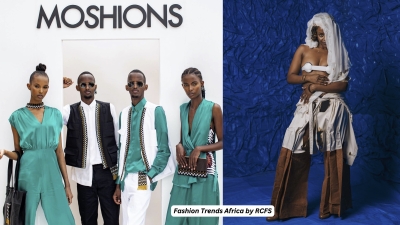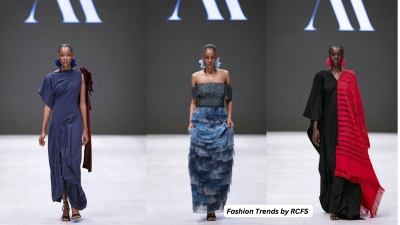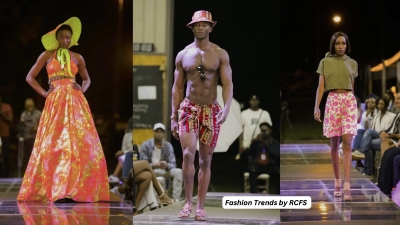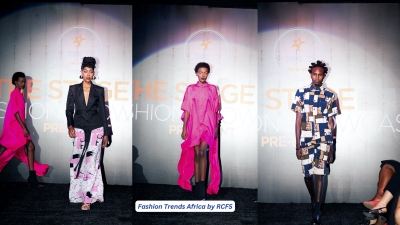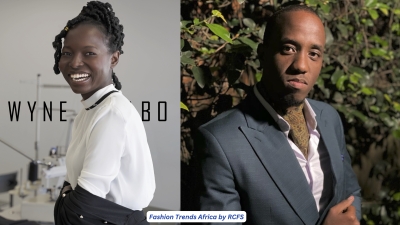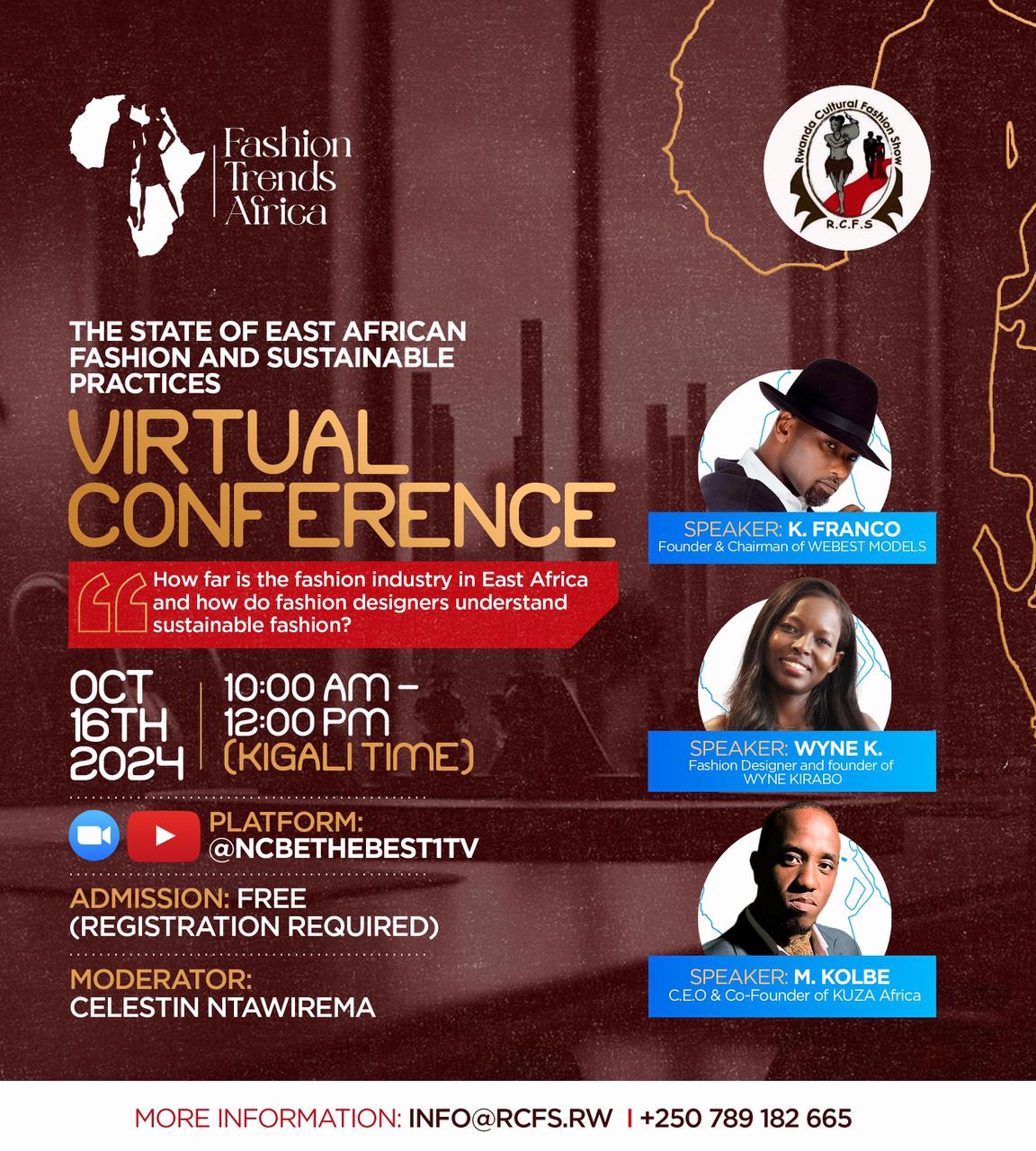![[PHOTO: Shiko Onyango Kenyan artist and fashion designer, very talented and creative]](/media/k2/items/cache/ccbca3752adf58a776d876d7a7de9edc_L.jpg) [PHOTO: Shiko Onyango Kenyan artist and fashion designer, very talented and creative]
[PHOTO: Shiko Onyango Kenyan artist and fashion designer, very talented and creative]
The poet and playwright Oscar Wilde said that one should either be a work of art or wear a work of art. But for Kenyan creative designer Shiko Onyango, being a work art and wearing it is inextricably intertwined. The 34-year old creative has designed wearable art pieces for Nigerian afro pop musician Yemi Alade, Kenyan rapper Muthoni the Drummer Queen and Grammy award-winning songstress Angelique Kidjo, among other high-profile personalities.
Her unique fusion of traditional craftsmanship and contemporary design boldly characterises her Tribal Trends brand, an idea first-sparked in high school. “I started making jewelry in 2006 when learned beadwork from the Maasai community,” she tells TRT Afrika. “After high school, I couldn’t find any jobs that could fit my passion for art and fashion, so I created the job I wanted.”

Artistic statement
Wearable art, also known as artwear or "art to wear", refers to art pieces in clothing or jewellery form, often made by hand or produced only once as part of a limited series. According to the platform Anatolian Craft, the handmade quality of a wearable artwork expresses its creator’s unique aesthetic in making an artistic statement.
“All my pieces are have that match what I was feeling while making them. For instance, the ‘Muthoni headpiece’ is a design that celebrates the strong woman and is named after the first woman field marshal in Kenya,” Shiko explains. “The piece is a cool way for people to learn about history and culture as much as it is a fashion statement as well.”
Made from cowry shells, Muthoni headpiece is inspired by Kenya’s Kikuyu tribe and is one the best-selling items by Tribal Trends.

By 2013, Shiko had formed a network of stay-at-home mums like herself, training them in beadwork and other skills in order to cater to the demand for wearable art. She has since opened up more workshops to produce more creative pieces. “As a creative, when you design a piece of wearable art, making it again to exact specifications can be quite the challenge,” the mother of two explains.
“It is therefore empowering training many stay-at-homes mums among other groups of people interested in learning about fashion and culture so that they too can earn an income and also be part of the goal to influence culture,” she adds.
Naming culture
“Another fast selling item is the Akinyi choker which is made from bone.
Akinyi is a name derived from the Luo tribe in Kenya, and this wearable art piece is modelled after a woman who Shiko imagines is a “powerful and beautiful mother who takes of her children regardless of societal norms.”

Shiko, who is Kikuyu and Kamba by heritage, and Luo by marriage, says the traditional names of her wearable art is intended to promote cohesiveness in the Kenyan culture. “In Kenya, there is a longstanding narrative that the Kikuyu and Luo historically don’t get along. This is why I give my wearable art names that belong to different tribes in Kenya as a way to promote unity and reject that culture of tribalism.”
In that vein, the Kasiva wearable art piece is a tribute to the rhythm and spirit of Kenya's greatest female percussionist, Kasiva Mutua who hails from the country’s eastern region. The Nekesa body piece is meanwhile named in honour of women from Kenya’s Luhya tribe.
‘Africa to the World’
Shiko’s mantra, “Afrika to the World”, symbolises her commitment to share the culture and beauty of Africa on a global scale – a feat she has remarkably achieved not only by her high-profile clientele but also through the sustainable nature of her business.

“Beads may have be brought to Africa through colonialsism but before that we had our own wooden beads, bones and seeds which Africans used to make beautiful things,” states the self-taught designer.
“We still use bones today collected from food waste. These bones are cleaned and upcycled to make beads and other wearable items,” says Shiko. “That’s a whole line of sustainability starting from the people who collect the bones from dumpsites to the people that finally wear the finished product.”
In addition to creating art from beads, bones, and cowry shells, Tribal Trends also makes designs from various recycled or upscycled items.
Sustainable art
“We recycle brass from old padlocks by melting and transforming them into beautiful pieces,” she explains. “We also make earrings, bracelets, and other wearable items from old aluminum pans.”

“We buy most of the metal from the scrap metal sector in Kenya as a way to empower the people working in that industry,” she tells TRT Afrika.
“The second-hand clothing sector is also huge in Kenya, so we engage young graffiti artists to repurpose jeans and other clothing items through graffiti spray painting.” This project, dubbed ‘Trash to Purpose’ also tackles the problem of unemployment among the youth.
Shiko’s wearable art has been showcased at Zanzibar International Fashion Festival among other renowned platforms. She is currently collaborating with one of the leading designers in South Africa and has additionally made designs for TruFace by Grace – a black woman owned brand which promotes the preservation of artisanal skills and traditional craftsmanship.
Her advice to aspiring creative designers: “There’s no template for what fashion be so start by designing according to your tastes first, and your tribe will follow. Just be true to your creativity. It will pay off.”
Listen to the full episode of Shiko Onyango in the Made in Africa Podcast
In episode 15, she talks about her journey to establish her company and current projects working with local artists and African designers. So far about 1000 people benefit from her company’s success story. Being part of regional initiatives such as Creative DNA and From Trash to Purpose enabled Shiko to integrate more sustainable products into the Tribal Trends and Africa to the World project. Shiko also talks about sustainability and technology inside her brand the Tribal Trends as well as her favorite Kenyan and African dishes, and the cultural espcts and uniqueness of women from her 3 cultures.
Latest from RCFS
- 9 Years Milestone: Moses Turahirwa and His Moshions Brand Rwanda-Based
- 9 Years Milestone: Moses Turahirwa and His Moshions Brand Rwanda-Based
- What to Expect in Lagos Heineken Fashion Week 2024: Runways Kick off Today
- What to Expect in Lagos Heineken Fashion Week 2024: Runways Kick off Today
- Storytelling Meets High Fashion at The Kenya Fashion Story 2024



